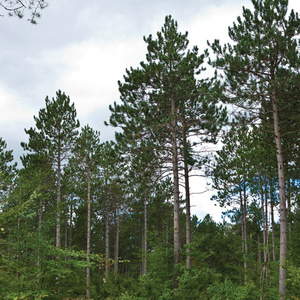Aalto University, VTT sign bioeconomy agreement




August 27, 2018
BY VTT Technical Research Centre of Finland
On Aug. 23, Aalto University and VTT Technical Research Centre of Finland signed a collaboration agreement on the CERES flagship program and took a concrete step towards a joint innovation ecosystem in the field of bioeconomy. The aim is to develop materials from renewable resources in order to safeguard a sustainable future. The Academy of Finland has granted a EUR 9.5 million flagship funding for the first four years of the project. An extension funding for the next four-year period will be based on an interim evaluation. The total funding of the project is EUR 24 million.
The CERES innovation ecosystem will create a unique foundation for new bioeconomy innovations in Finland. Plant-based biomaterial is the future plastics and, according to researchers, much beyond. The purpose of this ecosystem is to develop new materials, in particular based on lignocellulose and forest biomass, for industrial-scale production of packaging, textiles and separation systems, as well as semiconductors, composites and solutions for energy storage.
According to VTT's scenario calculations, if used to manufacture high added-value products, Finnish forest and field biomass could double in value by 2050. It is possible to do all this and, at the same time, reach the climate targets set for the country. This scenario work is the first analysis of Finland's potential in the bioeconomy and its transition to a low-carbon economy, which takes account of all industrial and emission sectors.
Advertisement
The objective of Finland's national bioeconomy strategy is to create 100,000 new jobs in the country and increase the bioeconomy output by EUR 40 billion by 2025. The research and development work to be performed under CERES will support the delivery of this objective and help companies to make new openings in the international market.
On Aug. 23, VTT President and CEO Antti Vasara and Aalto University President Ilkka Niemelä signed a collaboration agreement to establish the CERES ecosystem. In this agreement, both parties emphasize their willingness to create a joint ecosystem in the field of biomaterial research, as well as create ground rules for successful cooperation. The agreement also aims to support the commercial exploitation of project results.
Advertisement
CERES will function as a virtual knowledge centre. It will develop new methods for biomass processing as well as material solutions based on these, and provide the industry long-term, globally cutting-edge R&D work.
Related Stories
The U.S. Department of Energy Bioenergy Technologies Office (BETO) announced up to $23 million in funding to support research and development (R&D) of domestic chemicals and fuels from biomass and waste resources.
The U.S. DOE has announced its intent to issue funding to support high-impact research and development (R&D) projects in two priority areas: sustainable propane and renewable chemicals and algal system cultivation and preprocessing.
Sens. Sherrod Brown, D-Ohio, and Pete Ricketts, R-Neb., in August introduced the Renewable Chemicals Act, a bill that aims to create a tax credit to support the production of biobased chemicals.
The Chemical Catalysis for Bioenergy Consortium, a consortium of the U.S. DOE’s Bioenergy Technologies Office, has launched an effort that aims to gather community input on the development of new biomass processing facilities.
USDA on March 8 celebrated the second annual National Biobased Products Day, a celebration to raise public awareness of biobased products, their benefits and their contributions to the U.S. economy and rural communities.
Upcoming Events










